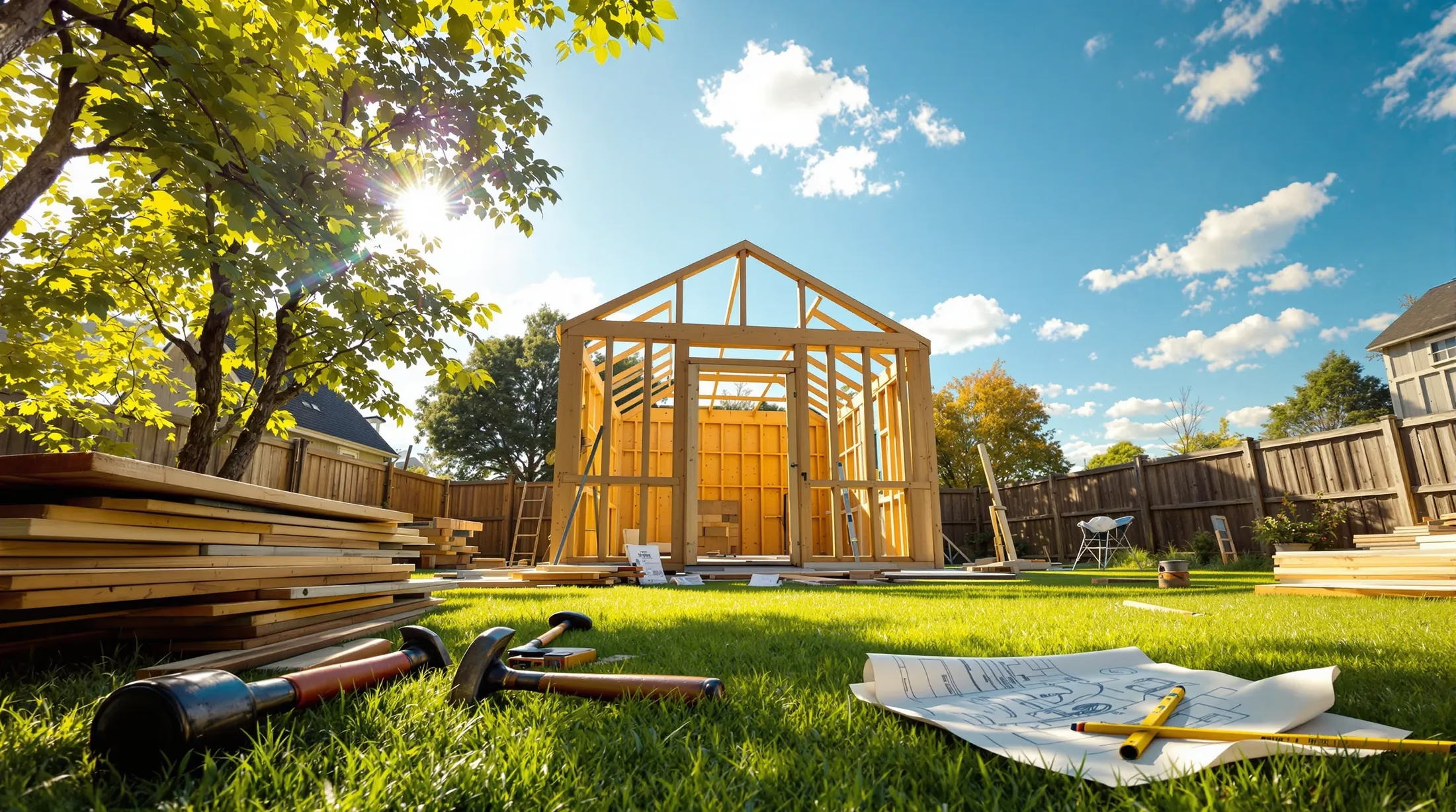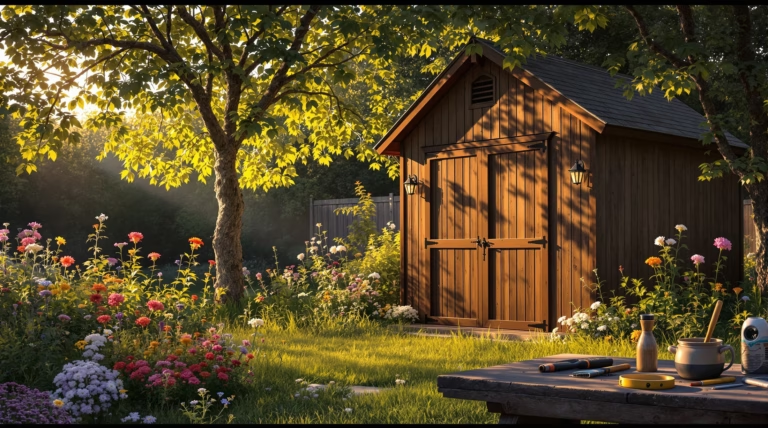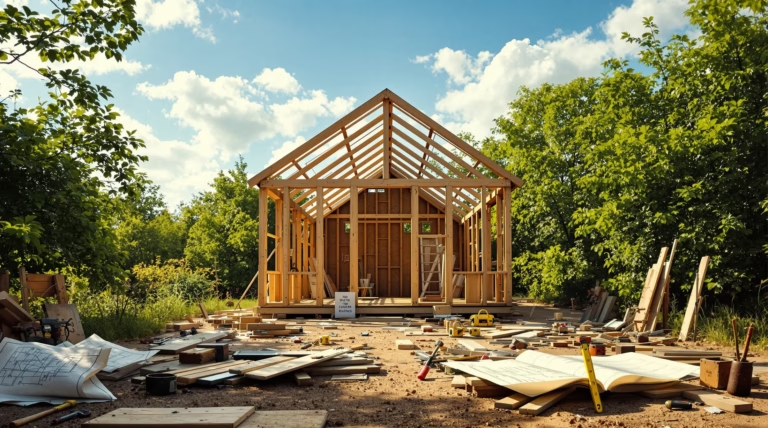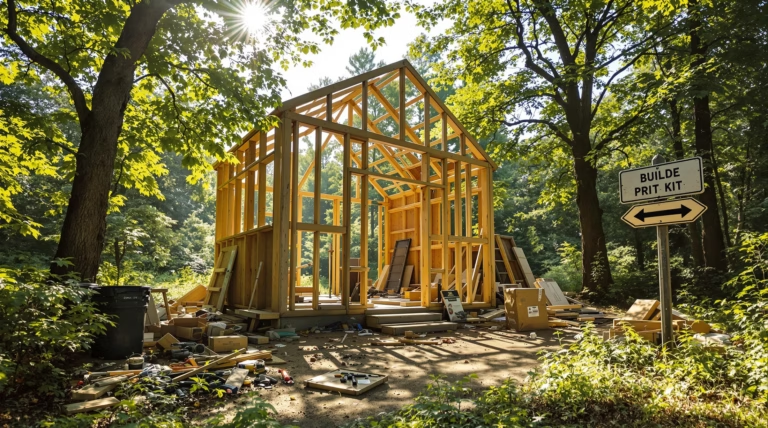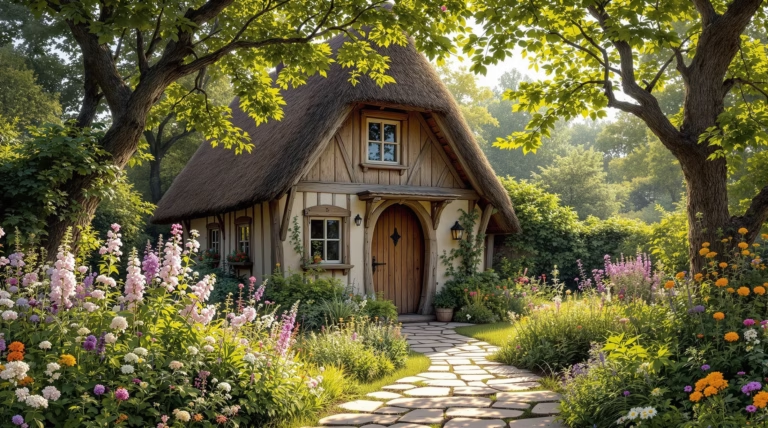How Much Does It Cost to Build Your Own Shed? A Comprehensive Guide
Looking to maximize storage space while keeping costs under control? Building your own shed can save you up to 40% compared to pre-built options. Let’s explore the real costs and considerations for your DIY shed project to help you make informed decisions and stay within budget.
Understanding the Cost to Build Your Own Shed
Building a DIY shed starts around $1,200, offering significant savings over pre-built structures. This cost-effective approach requires careful planning and understanding of all expenses involved to ensure your project stays within budget while meeting your storage needs.
Factors Influencing Shed Construction Costs
The final cost of your shed project depends on several key elements:
- Size and design complexity
- Material selection and quality
- Geographic location (10-20% price variation between regions)
- Foundation requirements
- Additional features and customizations
Average Cost Range for Building a Shed
| Project Scale | Cost Range |
|---|---|
| Basic Storage Solution | $400 – $1,000 |
| Standard Shed | $1,000 – $3,000 |
| Premium Custom Shed | $3,000 – $15,000+ |
DIY Shed Construction: Saving on Labor Costs
By building your own shed, you’ll eliminate professional labor costs, which typically account for 30-50% of the total project expense. This approach can transform a $5,000 professional installation into a $3,000 DIY project.
Benefits of Building a Shed Yourself
- Complete control over design and customization
- Opportunity to use recycled or discounted materials
- Minimal waste through careful planning
- Development of valuable construction skills
- Personal satisfaction of creating something yourself
Essential Tools for DIY Shed Construction
A basic toolkit for shed construction costs approximately $200-$300 and should include:
- Hammer and measuring tape
- Level and square
- Circular saw and drill with bits
- Safety equipment (gloves, eye protection)
- Ladders and sawhorses
- Chalk line and clamps
Material Selection and Its Impact on Shed Costs
Your choice of materials significantly influences both initial costs and long-term maintenance expenses. Urban areas typically see 10-20% higher material costs compared to rural locations. Strategic material selection combined with DIY construction can result in approximately 40% savings compared to pre-built options.
Material Selection and Its Impact on Shed Costs
Comparing Different Shed Materials
- Wood – offers excellent customization and aesthetic appeal, requires maintenance every 2-3 years, best insulation properties
- Metal – provides superior durability and weather resistance at competitive prices, potential for rust in humid areas, less insulation
- Vinyl/Resin – virtually maintenance-free, resistant to rot, insects, and rust, limited customization options
Your material choice should align with your local climate, intended use, and maintenance preferences. While wood sheds excel in modification options, metal structures offer enhanced security and fire resistance. Vinyl structures stand out for weather resistance but provide fewer customization possibilities once installed.
Cost of Materials for Various Shed Types
| Material Type | Starting Cost | Additional Considerations |
|---|---|---|
| Basic Wood | $500 | Regular maintenance required |
| Premium Wood (Cedar/Redwood) | $1,500-2,000 | Natural decay resistance |
| Metal | $800 | Varies by metal type |
| Resin/Vinyl | $700-900 | Minimal additional materials needed |
Beyond primary materials, your budget should include:
- Fasteners and hardware
- Roofing materials ($100-500+)
- Flooring components
- Foundation materials ($100-1,000+)
- Finishing supplies
While specialty materials can push costs up to $30,000 for high-end designs, most DIY builders typically spend between $1,500-$3,000 for complete material packages.
Permits and Legal Considerations for Shed Construction
Understanding local legal requirements is crucial before starting your shed project. Most areas have specific regulations for outbuildings, and non-compliance can result in fines or forced removal. While sheds under 120 square feet often don’t require permits, they must still meet setback requirements and height restrictions.
Understanding Local Building Codes and Permits
Building codes typically address:
- Foundation requirements
- Framing specifications
- Roof load capacities
- Property line setbacks
- Distance from utilities
- Overall structure height
Cost Implications of Obtaining Permits
| Permit Type | Cost Range |
|---|---|
| Basic Building Permit | $50-145 |
| Professional Site Plans | $200-1,000 |
| Specialized Permits (electrical, plumbing) | Additional fees vary |
While permits add to initial costs, they protect your property value and ensure structural safety through professional inspections. Consider these expenses as an investment in your property’s long-term value and legal compliance.
Foundation Options and Their Costs
A proper foundation typically represents 15-20% of your total shed budget but is crucial for long-term structural integrity. Your selection should consider soil conditions, climate, and shed size. Professional consultation about local soil conditions can help determine the most suitable foundation type, potentially extending your shed’s lifespan by decades.
Foundation Options and Their Costs
Types of Foundations for Sheds
- Gravel Base – eight-inch compacted layer providing excellent drainage, ideal for smaller sheds and DIY projects
- Concrete Foundations – available as piers or full slabs, offering maximum stability for larger structures
- Pressure-treated Wood Skids – suitable for small sheds on level ground
- Concrete Blocks – balance of affordability and support
- Plastic Shed Bases – designed for easy DIY installation
Cost Comparison of Different Foundation Types
| Foundation Type | Cost per Square Foot | Total Cost (10×12 ft shed) |
|---|---|---|
| Gravel | $4.50-$8.50 | $540-$1,020 |
| Concrete Slab | $6-$10 | $720-$1,200 |
| Concrete Piers | $5-$7 | $600-$840 |
| Wood Skids | $3-$6 | $360-$720 |
| Plastic Base | $4-$7 | $480-$840 |
Exploring Pre-fabricated Shed Kits
Pre-fabricated shed kits offer a convenient solution for homeowners seeking storage space without complex design requirements. These kits range from $200 for basic models to $30,000 for premium designs, with prices reflecting variations in size, material quality, and included features. Note that most kits exclude foundation costs, which require separate consideration in your budget planning.
Advantages of Using Shed Kits
- Pre-cut materials to exact specifications
- Comprehensive step-by-step instructions
- Reduced construction time
- Pre-hung doors and pre-cut window openings
- Compatible hardware packages included
- Customization options available
Cost Range for Pre-fabricated Shed Kits
| Kit Type | Size Range | Price Range |
|---|---|---|
| Basic Resin/Metal | 5×8 ft | $500-$800 |
| Mid-range Wooden | 8×10 or 10×12 ft | $1,500-$4,000 |
| Premium Kits | Similar dimensions | $8,000-$15,000 |
| Garden Tool Sheds | Small specialty | Starting at $230 |
Additional Features and Their Impact on Shed Costs
Customizations can increase your project cost by 20-50%, though DIY construction typically saves 40% compared to pre-built options. Essential investments include proper ventilation and secure door hardware, while decorative elements and specialized storage systems represent optional enhancements based on personal preferences and intended use.
Additional Features and Their Impact on Shed Costs
Popular Shed Upgrades and Their Costs
| Upgrade Type | Cost Range | Notes |
|---|---|---|
| Basic Vinyl Windows | $100-250 | Per window, installed |
| Premium Windows | $300-600 | Double-pane or specialized designs |
| Fiberglass Insulation | $0.50-1.50/sq ft | Standard batting |
| Foam Board Insulation | $1.50-3.00/sq ft | Better moisture resistance |
| Electrical Wiring | $300-800 | Complete installation |
Additional popular upgrades include:
- Custom wood shelving – $10-20 per linear foot
- DIY workbenches – $100-300
- Exterior lighting fixtures – $30-150 each
- Enhanced flooring (plywood/vinyl) – $1.50-3.00 per square foot
- Climate control options – $150-600 plus electrical infrastructure
Balancing Features with Budget
The key to cost-effective shed construction lies in selecting upgrades that align with your primary purpose. For a workshop, prioritize electrical work and natural lighting. If building a basic storage space, focus on shelving and organization systems.
- Install essential infrastructure during initial construction for future upgrades
- Consider solar tubes as a cost-effective alternative to multiple windows
- Opt for modular storage solutions instead of built-in options
- Invest in proper insulation and ventilation to extend shed lifespan
- Plan upgrades in phases to manage costs effectively

